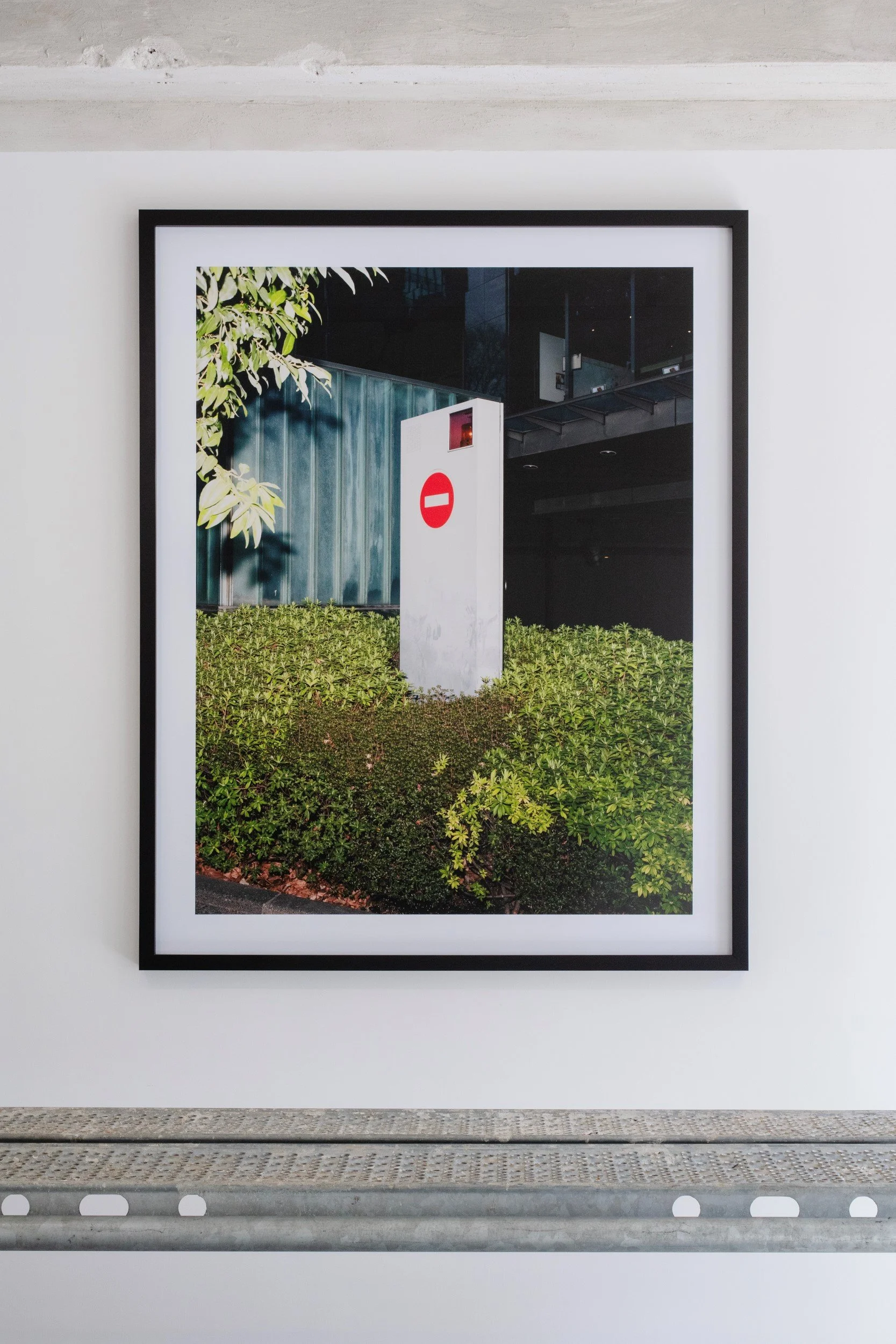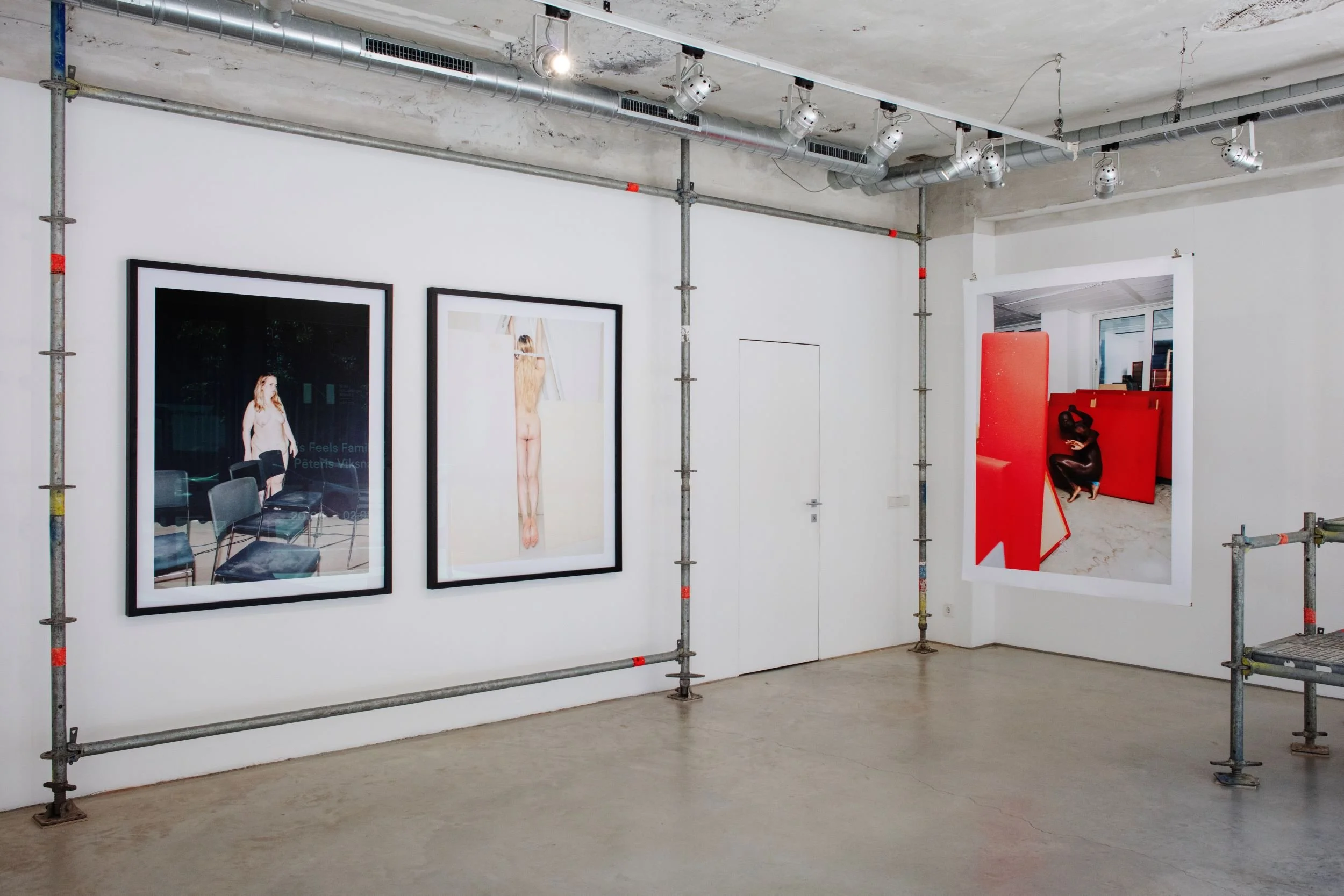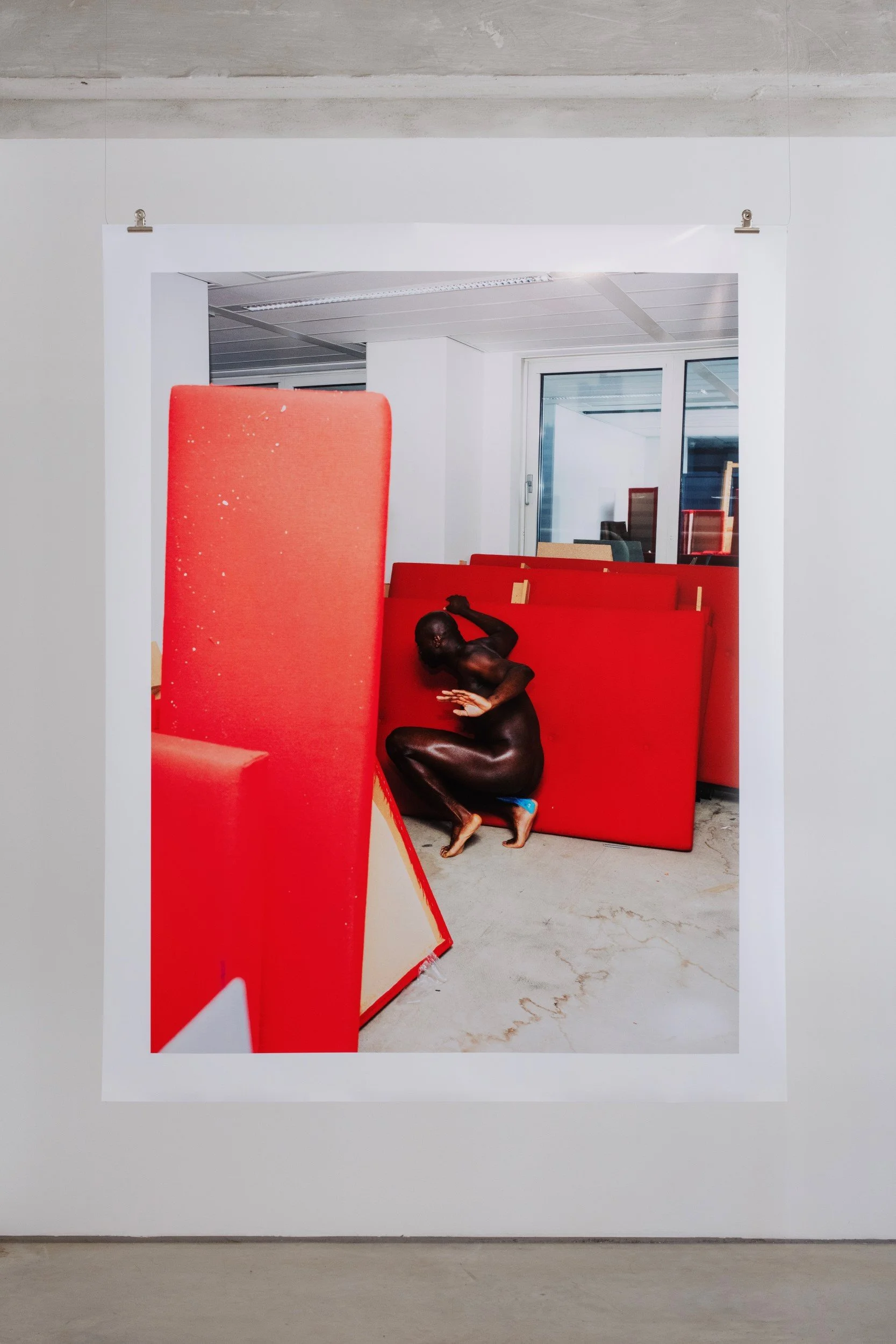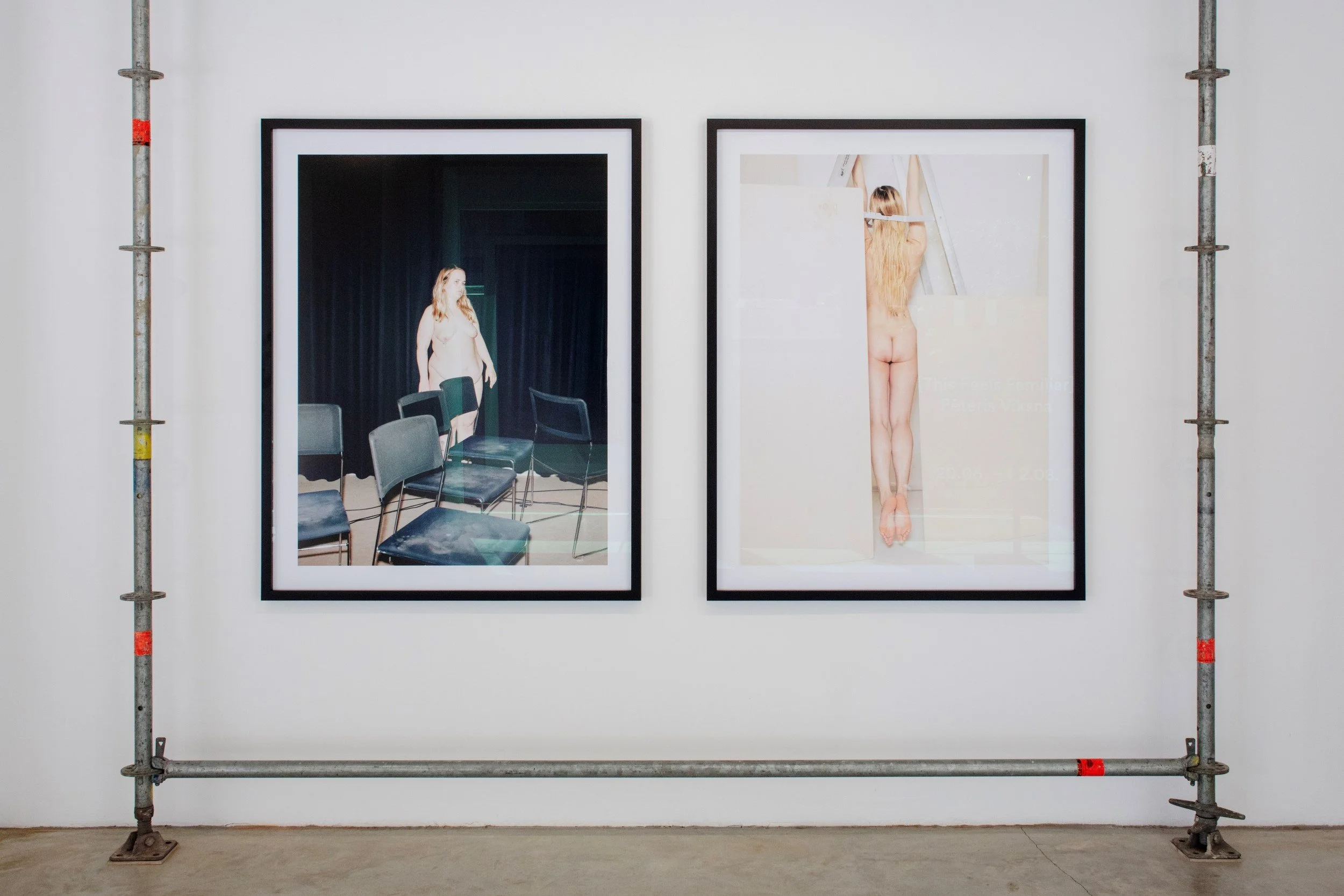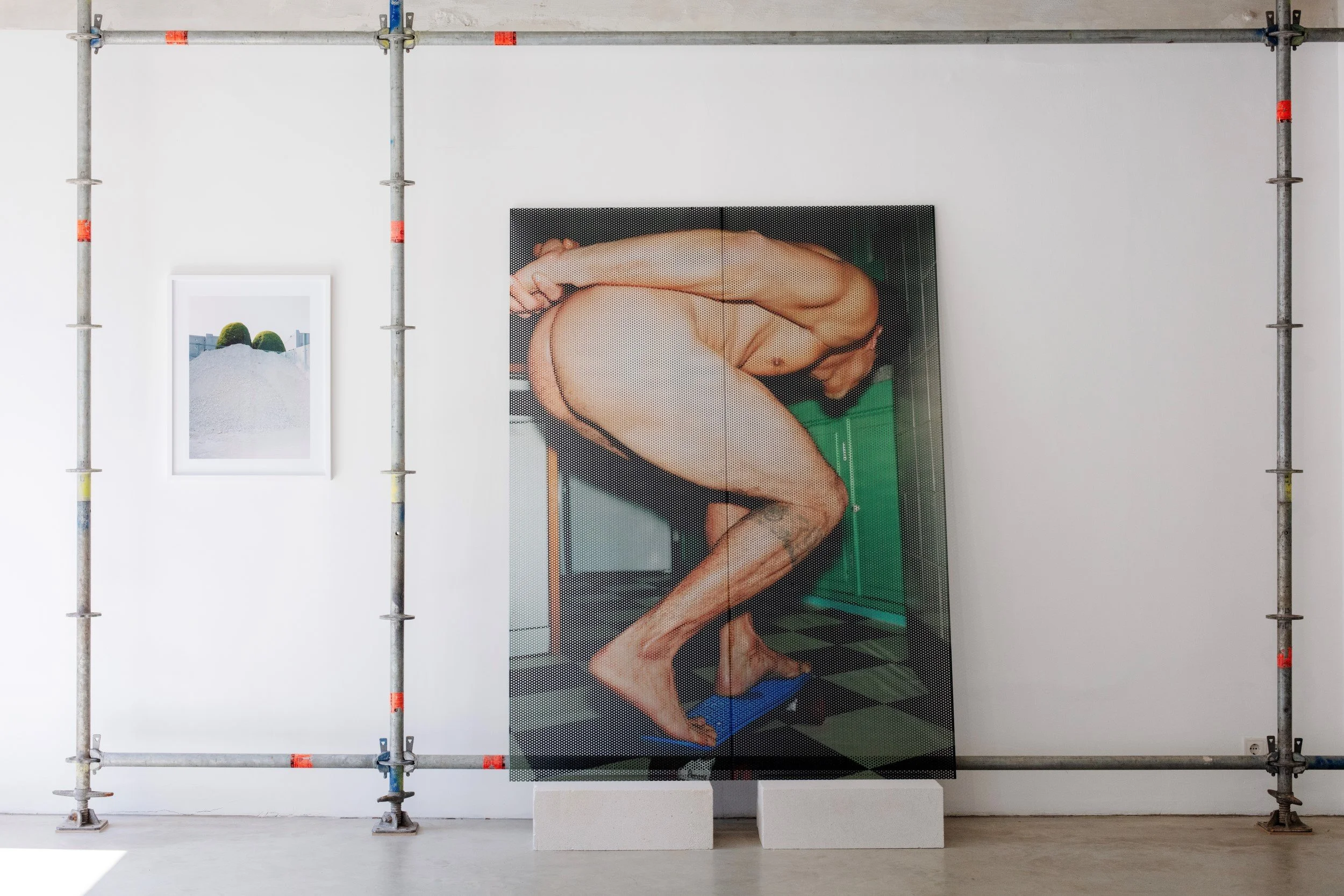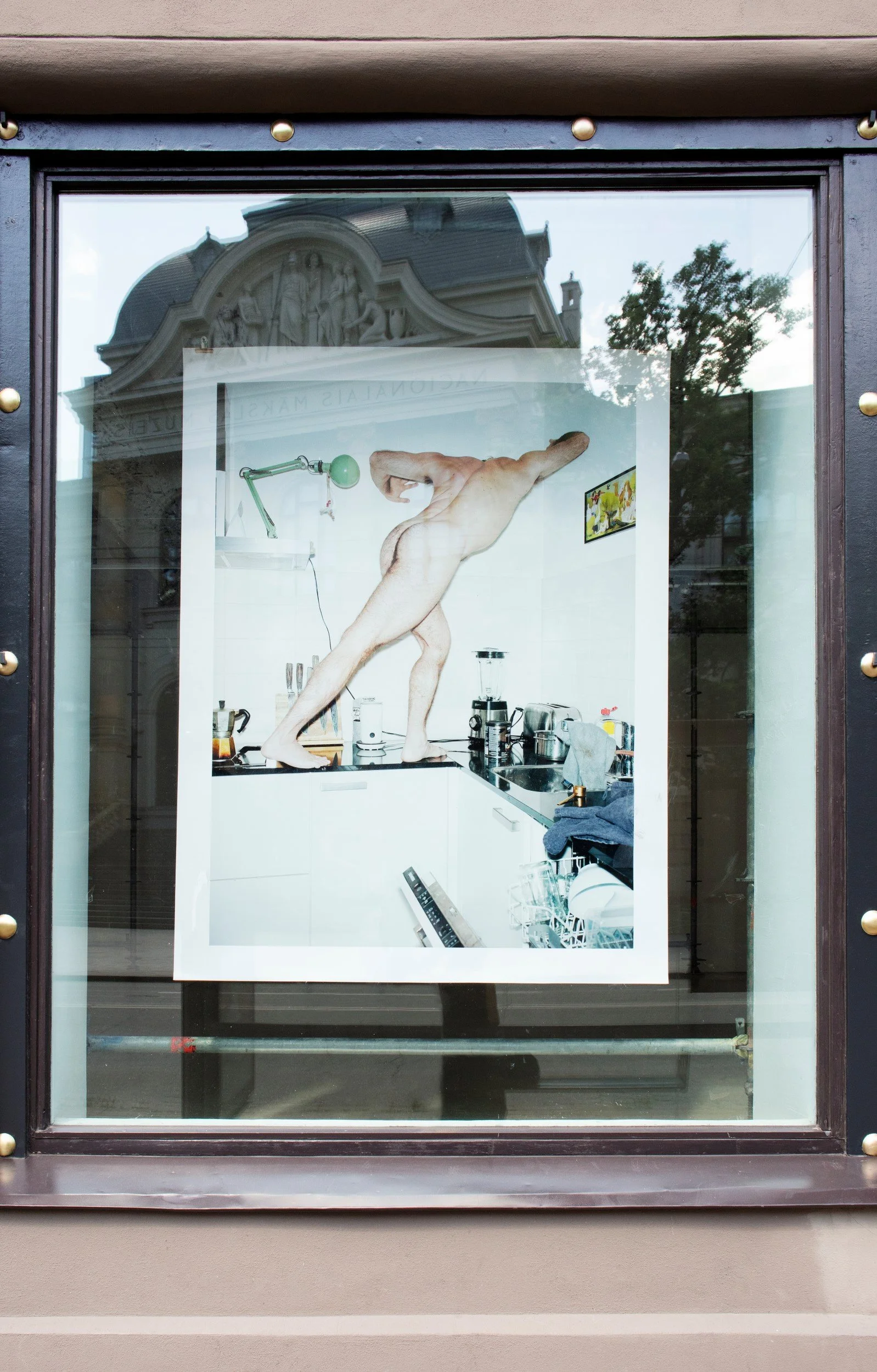This Feels Familiar
Pēteris Vīksna
20.06.2025 - 02.08.2025
“I am drawn to the subtle attempt to awaken curiosity that arises from contemplating the stuff of the world in a new way. Things that have changed their original function, been repurposed or abandoned. Through photography, they acquire new or alternative values and meanings – like monuments or remnants of a lost civilization.”
- Pēteris Vīksna
“This Feels Familiar” is a concentrated narrative about an intuitive, universally recognizable feeling that cannot be described with words, proven with facts, or convincingly defended in argument. It is a sensation we ourselves embody – when the body and its surroundings confront the paradoxes of everyday life and become a unified whole. The exhibition, in which photography has gained agency through various material forms, serves as a tool through which Pēteris Vīksna explores two simultaneously existing narratives – the similarities and differences between the urban environment and the corporeal. These narratives outline two photographic spaces that are always present in his creative practice: a dedication to capturing the oddities of urban reality, and a dedication to exploring the human figure as a subject that, through movement and posture, deconstructs the surrounding space.
The gallery space has been transformed into an immersive installation, whose physical form echoes the industrial character typical of the urban environment. Here, the environment becomes a material that envelops the human body – a foundation for anthropological inquiry and a restructuring of perception. The spatial solution continues a dialogue with Vīksna’s 2023 large-scale installation at the Tīrkultūra Audiovisual Summer Gallery, which centered around the question: What happens to an idea and its author when the conditions of its creation change? This idea continues to evolve in Vīksna’s most recent research processes, shifting alongside the changing conditions and the very questions being asked. The exhibition reflects both on the concept of place and non-place, as well as on exhibition-making itself as a fluid, processual event. The initial plan – to dedicate the exhibition to notes on world cities collected over more than five years (see the Riga Photography Biennial – NEXT 2025 catalog) – developed, expanded, and eventually led to the conclusion that the most truthful embodiment of this “familiar feeling” is the body itself – as a unique witness to time and place.
The exhibition includes three cityscapes from Pēteris Vīksna’s recent trip to Tokyo, where he has begun a new photography project in collaboration with Japanese underground artists. This marks a kind of continuation of his ongoing photo archive, in which Vīksna has explored the autonomous realities of cities around the world. Meanwhile, the human figures captured in the photographs are personalities who currently play an important role in Vīksna’s practice and life – collaborators he has met in recent years at DAS Theatre in Amsterdam. They are united by a shared interest in performativity, the body as a means of expression, and an interdisciplinary approach to artistic practice. These images document not only the people but also the context – a dynamic professional environment that has shaped Vīksna’s current approach to artistic work.
Writer and curator Charlotte Cotton has written that one of the most dramatic strategies in still life photography occurs when photographers explore how we see - or, conversely, fail to see - the things around us. In doing so, attention is directed toward our very perception of things. Pēteris Vīksna, too, invites the viewer to think - he is an intellectual photographer who consciously constructs his notes on world cities and people, almost as if mapping states of consciousness. Vīksna portrays the diversity of nakedness by rejecting the androcentrism typical of traditional nude photography - perceiving the body as an actor, he reflects on the boundaries between comfort and discomfort, on the multiple voices (value systems) present in society, and enters into a visual play with each model he captures.
The exhibition is part of the Riga Photography Biennial – NEXT 2025, which this year centers on the theme “invisible but present”. Vīksna’s contribution resonates deeply with this focus, offering a meditation on the uncanny sense of recognition - the moment when the unfamiliar becomes personal, even intimate.
Curator of the exhibition is Auguste Petre.
Pēteris Vīksna (1994, LV/NL) is one of the most active emerging Latvian photographers of his generation. His work centers on collective environments and urban landscapes, where he captures striking contrasts and moments of absurdity. Vīksna is a photographer who seeks not to interfere with the urban space—yet he actively documents his generation in informal situations, where control becomes his primary compositional tool.
He has participated in numerous group exhibitions, and his work has been featured in international publications. In 2021, he held a solo exhibition The Skin at Brīvība gallery in Riga. In 2024, he took part in the ĒTER project Nail Salon at MAGAZIN in Vienna. His cinematography was also featured in the 2023 RIGA IFF premiere of A Dog’s Gaze, directed by Ieva Aleksejeva. Alongside photography, Vīksna is actively involved in filmmaking and directing. In 2021, he received the Golden Microphone Award for Best Music Video of the Year. In 2020, he participated in the exhibition Dīkstāve (Standstill) as part of Riga Photomonth, and his work was included in the Latvian Photography Yearbook published by FK. He currently lives in Amsterdam, collaborating with international artists and institutions such as DAS Theatre, Frascati Theater, Arno Schuitemaker, Ira Brand, and others.
Exhibition is supported by: State Culture Capital Foundation, Riga City Council, GroGlass, Ramirent, printing house "Adverts", Arctic Paper, Arterritory.com, Echo Gone Wrong, NOBA.


